
Heather Leigh Whitestone McCallum is a former beauty queen and conservative activist who was the first deaf Miss America title holder, having lost most of her hearing at 18 months.
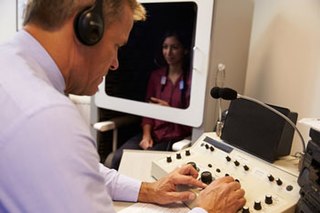
Audiology is a branch of science that studies hearing, balance, and related disorders. Audiologists treat those with hearing loss and proactively prevent related damage. By employing various testing strategies, audiologists aim to determine whether someone has normal sensitivity to sounds. If hearing loss is identified, audiologists determine which portions of hearing are affected, to what degree, and where the lesion causing the hearing loss is found. If an audiologist determines that a hearing loss or vestibular abnormality is present, they will provide recommendations for interventions or rehabilitation.
The Doctor of Audiology is a professional degree for an audiologist. The AuD program is designed to produce audiologists who are skilled in providing diagnostic, rehabilitative, and other services associated with hearing, balance, tinnitus management, and related audiological fields. These individuals help patients with hearing problems primarily by diagnosing hearing loss and fitting hearing assistive devices.
NextSense, formally the Royal Institute for Deaf & Blind Children (RIDBC), in Sydney provides a range of educational services for students with vision and/or hearing impairment, including specialist schools for signing deaf students, oral deaf students, and students with sensory and intellectual disabilities.
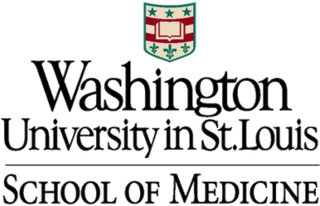
Washington University School of Medicine (WUSM) is the medical school of Washington University in St. Louis, and located in the Central West End neighborhood of St. Louis, Missouri. Founded in 1891, the School of Medicine shares a campus with Barnes-Jewish Hospital, St. Louis Children's Hospital, and the Alvin J. Siteman Cancer Center. It has consistently ranked among the top medical schools in the United States in terms of the number and amount of research grants/funding awarded by the National Institutes of Health, in addition to other measures.
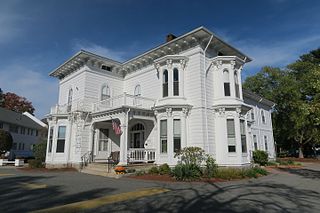
The Learning Center for the Deaf (TLC) is a Framingham, Massachusetts-based non-profit organization and school serving deaf and hard-of-hearing children and adults. The mission of The Learning Center for the Deaf is to ensure that all deaf and hard of hearing children and adults thrive by having the knowledge, opportunity and power to design the future of their choice.
Sound Seekers was a British charity which works to improve the lives of deaf children and children with ear diseases in the developing countries of the Commonwealth of Nations. It provided specialist equipment, training and support to some of the poorest countries of the world, where people with the 'hidden disability' of deafness may otherwise not receive the help they need. In 2020, Sound Seekers merged with DeafKidz International, with the combined charity using the DeafKidz International name.
The Speech and Hearing Bioscience and Technology (SHBT) PhD program in the Harvard Medical School - Division of Medical Sciences is an interdisciplinary training program designed to produce the next generation of pioneers in basic and clinical speech and hearing research. The program was established in 1992 by Nelson Kiang and was initially administered through MIT before moving to the Harvard-MIT HST Program and finally Harvard Medical School. The program was co-directed by Drs. Louis Braida and Bertrand Delgutte until 2002; Bertrand Delgutte was the director of the program from 2002 to 2012; Gwenaëlle Géléoc is the current director of the program.
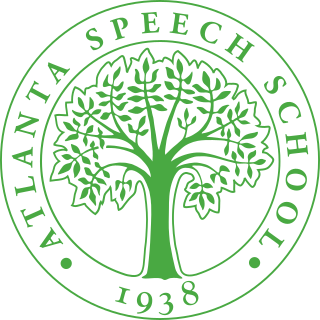
The Atlanta Speech School is a language and literacy school located in Atlanta, Georgia, established in 1938. The school provides educational and clinical programs. The Atlanta Speech School's Rollins Center provides professional development for teachers and educators in partner schools and preschools. The Rollins Center focuses on the eradication of illiteracy. The Rollins Center has an online presence called Cox Campus, which is an online learning environment with coursework targeted for the education of children age 0–8.

T. Alan Hurwitz is an American educator who served as the tenth President of Gallaudet University from 2010 to 2015. He is the first person born deaf, and first Jew, to hold this position. Previously, he served as President of the National Technical Institute for the Deaf and Vice President and Dean of Rochester Institute of Technology. He served in a variety of other roles for most of NTID's 40-year history.
Auditory processing disorder (APD), rarely known as King-Kopetzky syndrome or auditory disability with normal hearing (ADN), is a neurodevelopmental disorder affecting the way the brain processes sounds. Individuals with APD usually have normal structure and function of the ear, but cannot process the information they hear in the same way as others do, which leads to difficulties in recognizing and interpreting sounds, especially the sounds composing speech. It is thought that these difficulties arise from dysfunction in the central nervous system. This is, in part, essentially a failure of the cocktail party effect found in most people.
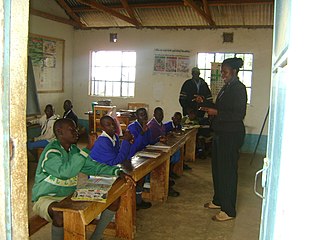
Deaf education is the education of students with any degree of hearing loss or deafness. This may involve, but does not always, individually-planned, systematically-monitored teaching methods, adaptive materials, accessible settings, and other interventions designed to help students achieve a higher level of self-sufficiency and success in the school and community than they would achieve with a typical classroom education. There are different language modalities used in educational setting where students get varied communication methods. A number of countries focus on training teachers to teach deaf students with a variety of approaches and have organizations to aid deaf students.
The UCL Ear Institute is an academic department of the Faculty of Brain Sciences of University College London (UCL) located in Gray's Inn Road in the Bloomsbury district of Central London, England, previously next to the Royal National Throat, Nose and Ear Hospital, the UK's largest ear, nose and throat hospital until it closed in 2019.
Hallowell Davis was an American physiologist, otolaryngologist and researcher who did pioneering work on the physiology of hearing and the inner ear. He served as director of research at the Central Institute for the Deaf in St. Louis, Missouri.
Leo G. Doerfler (1919–2004) was the founder of the profession of audiology, the science of hearing and hearing disorders, in the early 1940s. He played a leading role in establishing professional bodies and educational standards for audiology practitioners.
Ira Hirsh was an American psychologist who made early contributions to the field of audiology. He was the Edward Mallinckrodt Distinguished University Professor of Psychology and Audiology at Washington University in St. Louis (WUSTL) and served as president of the Acoustical Society of America.

Max Aaron Goldstein was best known for founding the Central Institute for the Deaf, his extensive study of ear, nose, and throat medicine, and for pioneering an "oral" approach to educating the deaf in the U.S. His parents, William and Hulda Goldstein, had immigrated to New Orleans from Germany prior his birth, but moved further inland to Missouri due to fear of the yellow fever outbreak occurring at the time in the southern United States.
Sharon G. Kujawa is a clinical audiologist, Director of Audiology Research at the Massachusetts Eye and Ear Infirmary, Associate Professor of Otology and Laryngology at Harvard Medical School, and Adjunct Faculty of Harvard-MIT Health Sciences and Technology.and specialist in otolaryngology, Her specialty is the effects of noise exposure and aging on auditory function.

Debara Lyn Tucci is an American otolaryngologist, studying ear, nose, and throat conditions. She co-founded the Duke Hearing Center and currently serves as a professor of Surgery and Director of the Cochlear Implant Program at Duke University. In September 2019 she became Director of the National Institute on Deafness and Other Communication Disorders, one of the National Institutes of Health's 27 Institutes and Centers.
Colette McKay is an Australian audiologist, academic and researcher. She leads the translational hearing program at the Bionics Institute of Australia.












